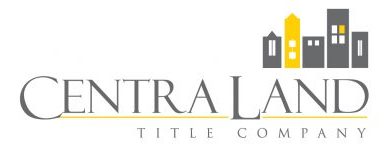1031 Exchanges can be complicated; CentraLand knows how to work with Qualified Intermediaries to obtain the best solutions in these complex transactions. We have an affiliate, Unlimited Exchange, willing and able to assist you with your 1031 transactions. Please click here to visit the Unlimited Exchange website for answers to your questions about Exchange Rules, types of Exchanges and getting started with a 1031 Exchange. The extensive FAQ section will help guide you. While there, download the “Section 1031 Handbook – Your Guide to Making the Most of Your Investments”.
CentraLand works closely with Qualified Intermediaries to effect 1031 Exchanges. We focus on providing IRS Section 1031 like-kind exchange services with efficiency and flexibility within the rules.
What is a 1031 Exchange?
The Tax-Deferred Exchange, as defined in Section 1031 of the Internal Revenue Code of 1986, as amended, offers real estate investors one of the last, great investment opportunities to build wealth and save taxes. By completing an exchange, the investor (Exchange Party) can dispose of investment property, use all of the equity to acquire replacement investment property, defer the capital gain tax that would ordinarily be paid, and leverage all of the equity into a new property (Replacement Property). Two requirements must be met to defer the capital gain tax: (a) the Exchange Party must acquire “like-kind” Replacement Property, and (b) the Exchange Party cannot receive cash or other benefits (unless the Exchange Party pays capital gain taxes on this money).
In any exchange, the Exchange Party must enter into the exchange transaction prior to the close of the Relinquished Property. The Exchange Party and the Qualified Intermediary enter into an Exchange Agreement, which essentially requires that (a) the Qualified Intermediary acquires the Relinquished Property from the Exchange Party and transfers it to the buyer by a direct deed from the Exchange Party, and (b) the Qualified Intermediary acquires the Replacement Property from the seller and transfers it to the Exchange Party by a direct deed from the seller. The cash or other proceeds from the Relinquished Property are assigned to the Qualified Intermediary and are held by the Qualified Intermediary in a separate, secure account. The exchange funds are used by the Qualified Intermediary to purchase the Replacement Property for the Exchange Party.

